For a city boy who grew up in a place where even family runabouts cost close to S$100,000, the temptation to buy a secondhand car for less than the price of a laptop computer, go on a road trip and explore New Zealand‘s wonders and backroads was impossible to resist. Given the spread of the attractions across the country, the only way to see them all was to join a tour group or get my own set of wheels.
These Wikitravel articles which I found [Driving in NZ; Buying/renting a car in NZ; Renting a motorhome in NZ] cover the basics such as purchasing/renting and selling, warrants, driving licenses, laws and hazards, but there are a few gaps which I discovered only when I got there. So, as promised, I’m following up my list of New Zealand surprises with a post that focuses on driving around the country as a visitor.
Fuel is expensive
When I was there, fuel prices came as a bit of a shock. They were anywhere between NZ$2.05 per litre in Rotorua and Greymouth to NZ$2.35 per litre in Queenstown and Glacier Country, just for RON 91 petrol. Even in the millionaires’ den that is Singapore, motorists pay the same price for RON 95 petrol.
There are ways to get discounts though. Some Pak n Save supermarkets have pumps, and those who shop there can get up to 30 cents off per litre. The miserly but eagle-eyed can pick up dropped receipts with bar codes to enjoy the savings without spending anything. Certain New World outlets also have a similar arrangement with Mobil stations.
One could cover as much as 8000 km exploring both the North and South Islands, so the fuel costs (and savings) add up very quickly. A saloon car like the one I drove returns between 10 and 14 km per litre, and heavy, brick-like camper vans are less economical. Sharing the ride with other people makes it more efficient overall, and the costs can be split among the occupants.
Hitchhiking
I posted my trips ahead of time on Couchsurfing to see if anyone wants to share the ride, but I picked up hitchhikers more frequently. Some of them were fellow guests at the hostels I stayed at, others simply stood by the roadside and held up signs indicating their destination.
It’s a relatively common practice among budget travellers, especially those from Europe, and I identified them by their accents and their backpacks. If they were polite, they offered to pay for fuel and put up with my music choices! It’s not 100% safe for both parties, but I readily took them on board rather than potentially let a shady character pick them up.
Caution: Slippery, don’t cut
It’s sometimes tempting to cross lanes or even the centre divider on an empty twisty piece of road, but don’t do it when it has been raining! Rumble strips between lanes are very slippery when wet. Treat the ones on the Otago Peninsula, which are more like tortoises, with plenty of respect, even in the dry; the huge bumps can easily upset any vehicle.
Check the speed
Between Christmas and the end of February, the tolerance for exceeding the speed limit decreases from 10km/h to 4km/h. Use cruise control if the vehicle is equipped with it, otherwise watch that right foot, especially when overtaking other cars. There are a few long stretches of straight road where it is tempting to open the throttle, but roaming Traffic Safety Cameras can appear out of nowhere.
Be defensive – and courteous!
There are a few different road users that require extra patience and caution when encountered. Logging trucks are a common sight on the North Island. Get stuck behind one and it’s difficult to see or drive around it; if you meet one coming in the opposite direction on a wet day, be prepared for a 100 km/h slap of water on the windshield.
Drivers from other countries may also drive cautiously (read: well below the speed limit) or even wander into oncoming traffic. If you realise that a train of cars has formed behind you, don’t be a road hog; pull over in a safe place and let everyone through.
Driving times can be deceiving
Many map applications underestimate driving times, as they don’t take into account the lower speed limits in towns, or the likelihood of getting stuck behind a slow vehicle for a while. For a more realistic picture, divide the driving distance by an average speed of 60 km/h.
In spite of these potential obstacles, driving in New Zealand is worth all the trouble. These are some of the destinations that drivers (and very determined cyclists) can visit which are not the usual bus stops:
A lookout point where the Pouhutu Geyser can be seen for free (Read more: Things to do in Rotorua)
Tutukaka, which is also the departure point for diving the Poor Knights Islands
Random fences covered with shoes, bras and more, such as this one in Cardrona (since trimmed in July ’14)
Lake Matheson, 6km from Fox Glacier village
Hokitika gorge
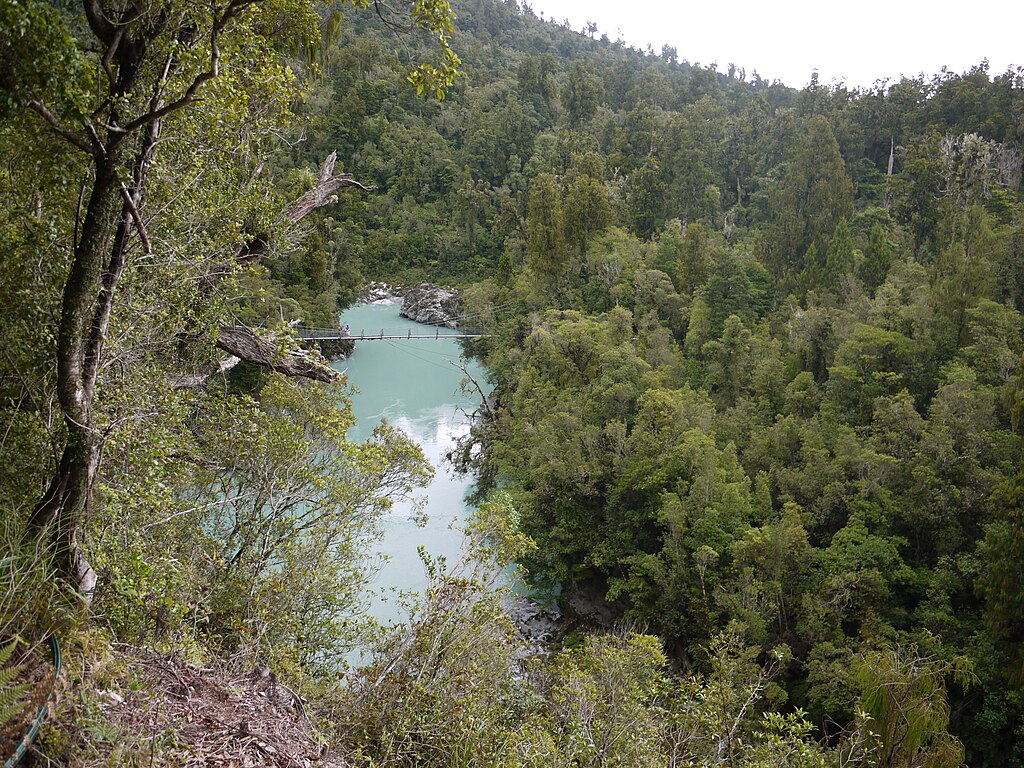
By Ischa1 (Own work) [Public domain], via Wikimedia Commons
Additional Links
I got myself a tidy Japanese sedan and wrote these tips from this perspective, but if you’re looking to rent a camper van, check out Liz’s fantastic post on The Do’s and Don’ts of a Road Trip in New Zealand over at Young Adventuress.
More tips and itineraries are available at DriveSafe.
Have I missed out any driving tips or destinations?








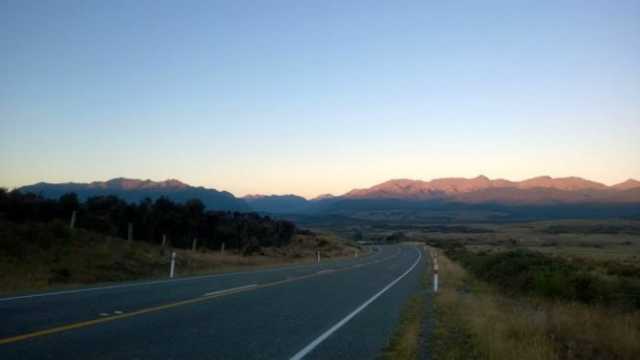
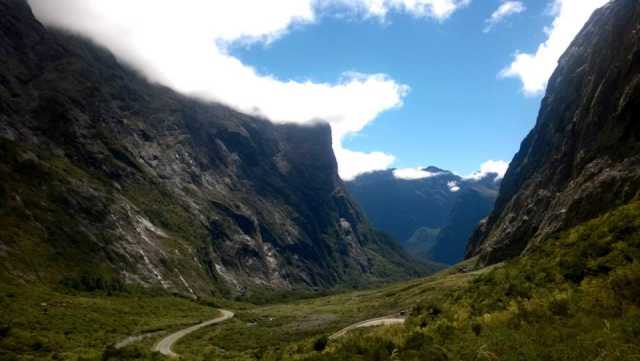
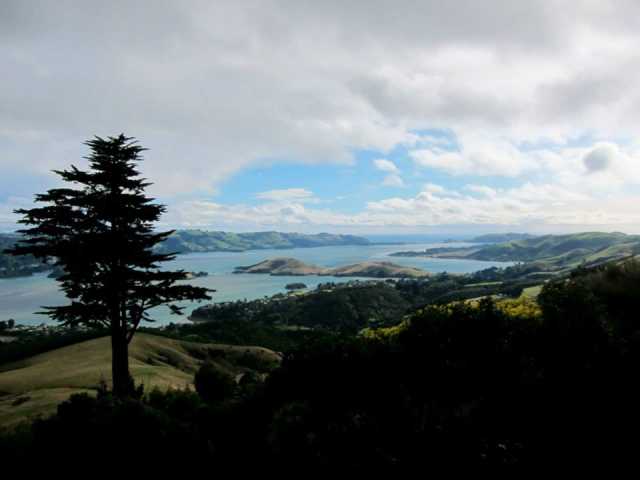
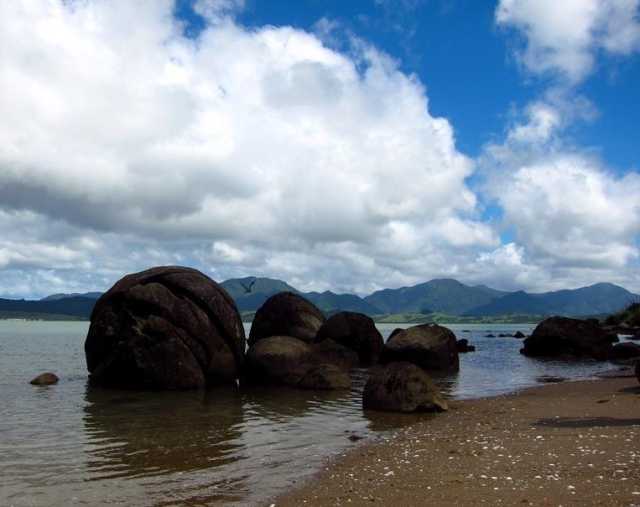
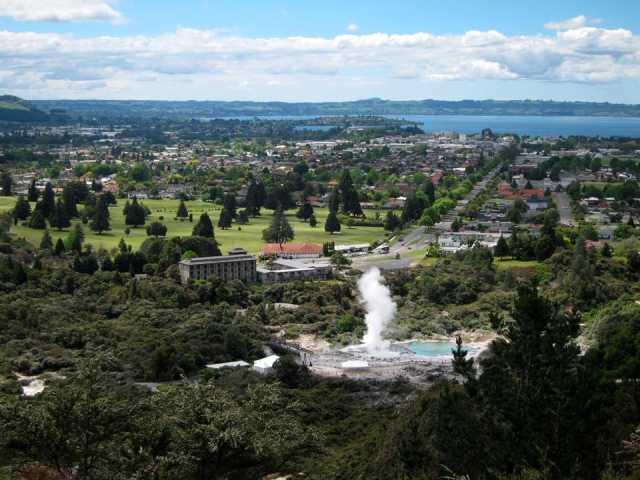
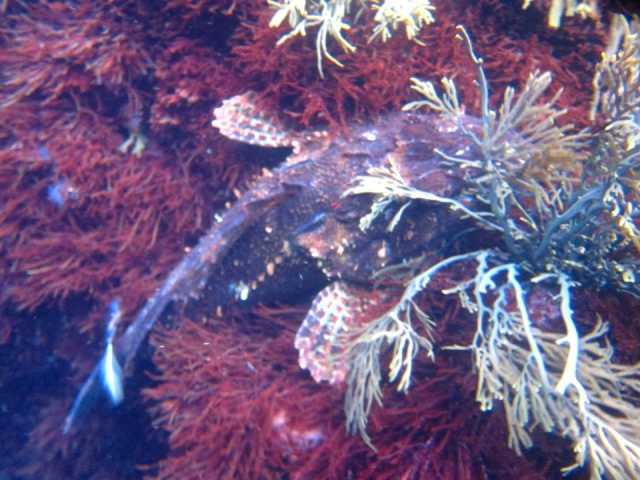


03/10/2014 @ 10:42 PM
I haven’t been to NZ but I really enjoyed reading this entry. Love the photo of the lake, too. It’s really beautiful. Love the reflection of the mountain in the water. I’m kind of curious with the Cardona fence though, why was it covered with shoes and other random stuff.
04/10/2014 @ 10:23 PM
Thanks for reading, Cheryl! The shoe fences are actually in different places that I didn’t pass, in Havelock and Waihola, and there were only bras on the fence I photographed . No one really knows why people started adding these things, although they resemble the bridges with love locks. With the undulations and the beautiful scenery, it’s a fun, challenging and beautiful place to cycle, and I know people who did it. Just watch out for the cross winds!
04/10/2014 @ 12:18 AM
I plan on visiting NZ next summer, and will definitely favorite this post so I can use it on my trip. I really appreciate the fuel saving tips as well! Extremely helpful!
04/10/2014 @ 10:52 PM
Cheers! I’m glad you found them useful!